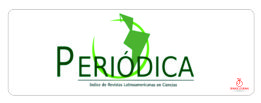Comparativa de métodos de segmentación para el análisis automático de cromosomas humanos
DOI:
https://doi.org/10.46502/issn.2710-995X/2021.5.06Palabras clave:
análisis automático de cromosomas humanos, cariotipo, cromosomas, métodos de segmentación, segmentación de imágenes.Resumen
Las anormalidades cromosómicas son una causa frecuente de morbilidad y mortalidad en la población humana. El análisis de los cromosomas es empleado en la citogenética para evaluar la presencia de defectos genéticos y otras enfermedades por la visualización de la estructura de los mismos. Este procedimiento se realiza mediante la observación de muestras usando un microscopio óptico, lo cual resulta ser largo y repetitivo y deviene gran esfuerzo para los especialistas que deben permanecer, a veces durante horas, observando en el microscopio los campos visuales para emitir un criterio. En este caso, un análisis automático eficaz ayudaría al trabajo rutinario del citogenetista. La clasificación cromosómica automática incluye tres partes principales: el preprocesamiento y la segmentación de las imágenes, la extracción de características y la posterior clasificación. La etapa de segmentación viene a ser una de las más importantes, pues a partir de ella es que se detectan y aíslan cromosomas simples o agrupamientos de cromosomas para realizar el posterior procesamiento. El presente trabajo tiene como objetivo realizar una revisión de diversos métodos utilizados para la segmentación de imágenes de cromosomas humanos. Se resumen algunas de las principales técnicas y métodos empleados recientemente en esta área de investigación y se discuten las principales ventajas y limitaciones de los métodos de segmentación estudiados.
Descargas
Citas
Altinsoy, E., Yilmaz, C., Wen, J., Wu, L., Yang, J., & Zhu, Y. (2019). Raw G-Band Chromosome Image Segmentation Using U-Net Based Neural Network. Artificial Intelligence and Soft Computing, 117-126. Cham: Springer, https://doi.org/10.1007/978-3-030-20915-5_11
Arora, T. (2019). A Novel Approach for Segmentation of Human Metaphase Chromosome Images Using Region Based Active Contours. Int. Arab J. Inf. Technol., 16(1), 132-137
Carothers, A., & Piper, J. (1994). Computer-aided classification of human chromosomes: a review. Statistics and Computing, 4(3), 161-171. https://doi.org/10.1007/BF00142568
Grisan, E., Poletti, E., & Ruggeri, A. (2009, febrero 3). Automatic segmentation and disentangling of chromosomes in Q-band prometaphase images. IEEE Transactions on Information Technology in Biomedicine. Recuperado 30 de agosto de 2021, de https://dl.acm.org/doi/10.1109/TITB.2009.2014464
Jahani, S., Setarehdan, K., & Fatemizadeh, E. (2011). Automatic Identification of Overlapping/Touching Chromosomes in Microscopic Images Using Morphological Operators. 2011 7th Iranian Conference on Machine Vision and Image Processing, MVIP 2011 - Proceedings. https://doi.org/10.1109/IranianMVIP.2011.6121574
Ji, L. (1989). Intelligent splitting in the chromosome domain. Pattern Recognition, 22(5), 519-532. https://doi.org/10.1016/0031-3203(89)90021-6
Ji, L. (1994). Fully automatic chromosome segmentation. Cytometry, 17(3), 196-208. https://doi.org/10.1002/cyto.990170303
Joe Hin Tjio, & Levan, A. (1956). The chromosome number of man. Hereditas: Genetitiskt Arkiv, (Band 42), 80-85.
Karvelis, P., Fotiadis, D. I., Syrrou, M. V., & Georgiou, I. (s. f.). Segmentation of chromosome images based on a recursive watershed transform. In IFMBE Proc. Recuperado 2 de septiembre de 2021, de https://www.researchgate.net/publication/228367656_Segmentation_of_chromosome_images_based_on_a_recursive_watershed_transform
Karvelis, P., Likas, A., & Fotiadis, D. I. (2010). Identifying touching and overlapping chromosomes using the watershed transform and gradient paths. Pattern Recognition Letters, 31(16), 2474-2488. https://doi.org/10.1016/j.patrec.2010.08.002
Kass, M., Witkin, A., & Terzopoulos, D. (1988). Snakes: Active contour models. International Journal of Computer Vision, 1(4), 321-331. https://doi.org/10.1007/BF00133570
Li, Y., Knoll, J. H., Wilkins, R. C., Flegal, F. N., & Rogan, P. K. (2016). Automated discrimination of dicentric and monocentric chromosomes by machine learning-based image processing. Microscopy Research and Technique, 79(5), 393-402. https://doi.org/10.1002/jemt.22642
Madian, N., Devaraj, S., Suganthi, S. T., & Brightlin, B. C. (2020). Graph Partitioning approach for Segmentation of Banding Pattern of G-band Metaphase Human Chromosomes. 2020 International Conference on Computer Communication and Informatics (ICCCI), 1-5. Coimbatore, India: IEEE. https://doi.org/10.1109/ICCCI48352.2020.9104123
Menaka, D., & Vaidyanathan, S. G. (2019). Expectation Maximization Segmentation Algorithm for Classification of Human Genome Image. 2019 3rd International Conference on Computing Methodologies and Communication (ICCMC), 1055-1059. https://doi.org/10.1109/ICCMC.2019.8819686
Nair, R. M., Remya, R., & Sabeena, K. (2015). Karyotyping Techniques of Chromosomes: A Survey. International Journal of Computer Trends and Technology, 22(1), 30-34. https://doi.org/10.14445/22312803/IJCTT-V22P107
Qiu, Y., Chen, X., Li, Y., Chen, W. R., Zheng, B., Li, S., & Liu, H. (2013). Evaluations of auto-focusing methods under a microscopic imaging modality for metaphase chromosome image analysis. Analytical Cellular Pathology (Amsterdam), 36(0), 37. https://doi.org/10.3233/ACP-130077
Qiu, Y., Song, J., Lu, X., Li, Y., Zheng, B., Li, S., & Liu, H. (2014). Feature selection for the automated detection of metaphase chromosomes: performance comparison using a receiver operating characteristic method. Analytical Cellular Pathology (Amsterdam), 565392. https://doi.org/10.1155/2014/565392
Schwartzkopf, W. C., Bovik, A. C., & Evans, B. L. (2005). Maximum-likelihood techniques for joint segmentation-classification of multispectral chromosome images. IEEE Transactions on Medical Imaging, 24(12), 1593-1610. https://doi.org/10.1109/TMI.2005.859207
Shen, X., Qi, Y., Ma, T., & Zhou, Z. (2019). A dicentric chromosome identification method based on clustering and watershed algorithm. Scientific Reports. Recuperado 2 de septiembre de 2021, de https://www.nature.com/articles/s41598-019-38614-7
Somasundaram, D., & Kumar, V. V. (2014). Separation of overlapped chromosomes and pairing of similar chromosomes for karyotyping analysis. Measurement, 48, pp. 274-281, https://doi.org/10.1016/J.MEASUREMENT.2013.11.024
Somasundaram, D., & Nirmala, M. (2010). Automatic segmentation and karyotyping of chromosomes using bio-metrics. INTERACT-2010. https://doi.org/10.1109/INTERACT.2010.5706191
Sun, X., Li, J., Ma, J., Xu, H., Chen, B., Zhang, Y., & Feng, T. (2021, marzo 2). Segmentation of overlapping chromosome images using U-Net with improved dilated convolutions - IOS Press. Recuperado 2 de septiembre de 2021, de https://content.iospress.com/articles/journal-of-intelligent-and-fuzzy-systems/ifs201466
Tanvi, T., & Dhir, R. (2014). An Efficient Segmentation Method for Overlapping Chromosome Images. International Journal of Computer Applications, 95, 29-32. https://doi.org/10.5120/16560-4861
Trejo Bahena, N. I., & Sánchez González, D. J. (2012). Biología Celular y Molecular. México: Editorial Alfil, S.A. de C.V. Recuperado de https://library.biblioboard.com/content/9c403008-9442-477a-9a93-acef21651096
Yilmaz, I. C., Yang, J., Altinsoy, E., & Zhou, L. (2018). An Improved Segmentation for Raw G-Band Chromosome Images. 2018 5th International Conference on Systems and Informatics (ICSAI), 944-950. https://doi.org/10.1109/ICSAI.2018.8599328










